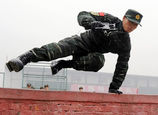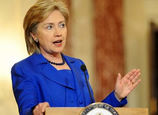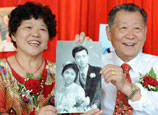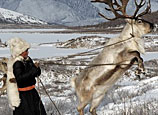
The constitution witnessed several amendments, mainly the modification of the most controversial Article 8, which stipulates that the ruling Baath party is the leader of the state and the society. The new constitution also limits the presidential terms to a maximum of two seven-year mandate.
Opposition groups in and outside Syria boycotted the referendum and dismissed it as a "farce."
By the end of July, an international conference was convened in Geneva with the participation of the five permanent member states of the UN Security Council, in addition to Kuwait, Qatar, Iraq and the European Union. The conference agreed on the principles of a political transition in Syria, the cessation of violence and the need to form a transitional government combining elements from the current government and the opposition.
The participants, however, differed on the role Syrian President Bashar al-Assad might play in the next stage.
In July, Syria witnessed a major security earthquake when three of its top generals, who were responsible to manage the crisis, were killed in a bombing in Damascus.
















 People in Hainan enjoy warm weather
People in Hainan enjoy warm weather


![]()
